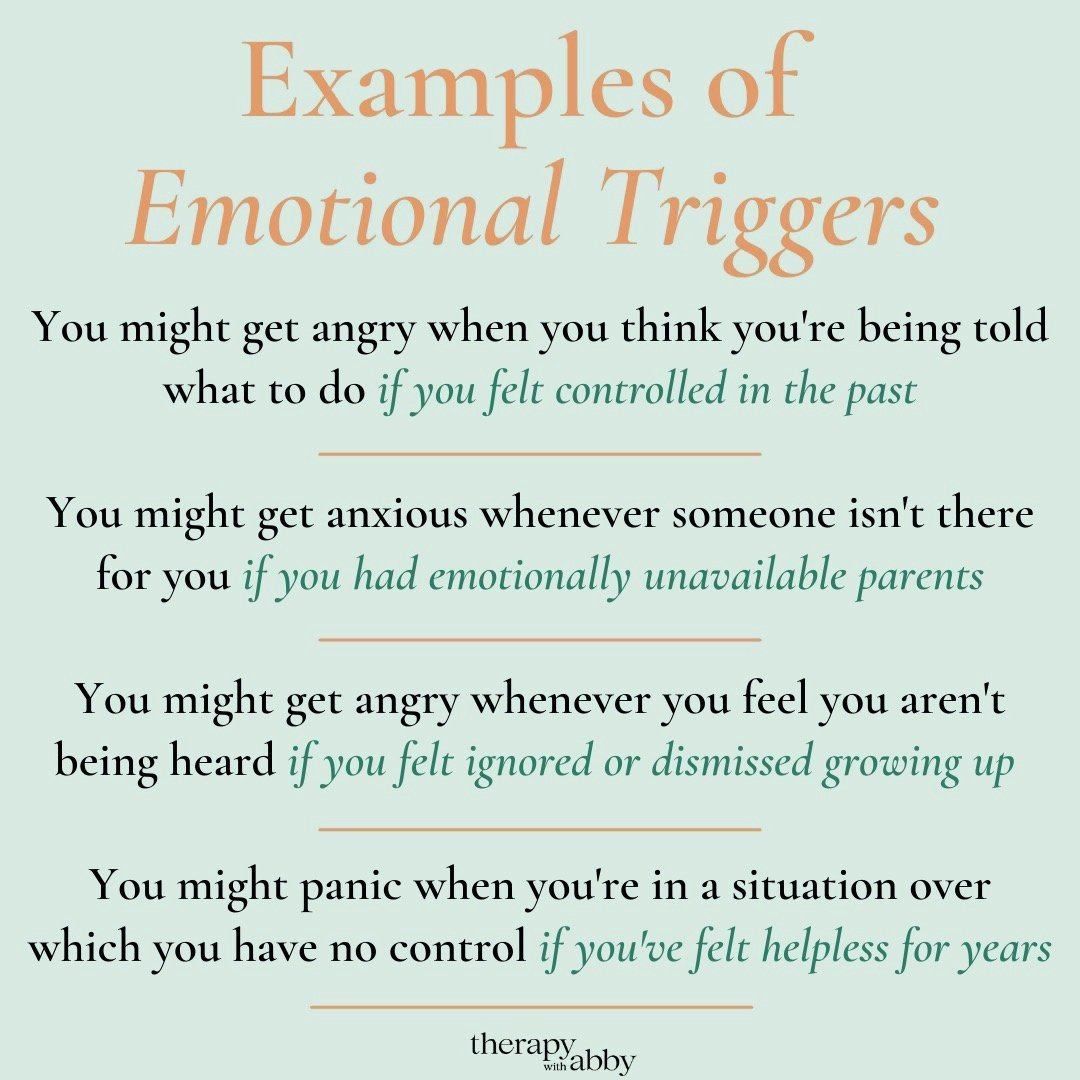How to Cope with Being Triggered
Image by Marine Buffard
Have you ever had that feeling when someone makes a comment that might not be a huge deal to someone else, but totally derails you for the rest of the day? Suddenly you feel anxious, guilty, angry or sad but you don’t really know why? Then, reflecting on the situation later, you realise how disproportionate your reaction was, and you feel confused about why you had such a strong emotional response?
⠀⠀⠀⠀⠀⠀⠀⠀⠀
Sound familiar? You’re not alone! We all get triggered.
What is an emotional trigger?
An emotional trigger is anything - including places, experiences, or interactions - that sparks an intense emotional reaction, regardless of your current mood.
⠀⠀⠀⠀⠀⠀⠀⠀⠀
Often our triggers unconsciously remind us of past pain or trauma. When we were growing up, we inevitably experienced pain or suffering that we couldn’t acknowledge or deal with properly at the time. So as adults, we typically become triggered by experiences that are reminiscent of these old painful feelings.
When we experience a trigger our body kicks off a complex process of self-protection that readies us for three possible actions: fight, flight or freeze. Our adrenaline spikes, and stress hormones like cortisol course throughout our bodies and brain.
Once these stress hormones are released, we often lose touch with our healthy coping skills and succumb to reacting rather than responding.
How to Identify Your Emotional Triggers
1. Notice the Internal Shift
It’s not always easy to recognise what triggered us. Our heightened emotions and dysregulated nervous system can make it difficult to pinpoint what exactly stimulated such a strong response. To identify your trigger, go back and try to find the moment when you went from “okay” to “not okay”. What felt upsetting? A comment from your boss? A story on the news? A text from a friend?⠀⠀⠀⠀⠀⠀⠀⠀
2. Name Your Feelings
The next step is to notice how you felt when you were triggered. Did you feel sad, anxious, scared, angry? One way to become attuned to our feelings is to notice the sensations in our body. Many emotional experiences start in the body before moving into our conscious awareness.
3. Understand the Trigger
Get to the root of your triggers by asking yourself the following questions:
When, in my life, have I experienced something like this before?
What does it remind me of? Are the feelings familiar?
What thoughts come with the emotions?
Is there a specific event from my childhood that stirred up similar emotions?
Understanding your triggers is a delicate skill that often takes practice and is sometimes best done with the help of a therapist. It’s important to be kind and patient with yourself - your triggers will be easier to spot if you approach them with curiosity and self-compassion rather than judgement.
How to Self-Regulate When You’re Triggered
1. A Deep Sigh
When you start to feel like your emotions are about to take off on a roller coaster ride take a few seconds to slow down and breathe to calm your body. A deep sigh is your body-brain’s natural way to release tension and reset your nervous system. When we exhale for longer than we inhale, the vagus nerve (the nerve that transfers messages from the brain to the body) sends the signal to ‘switch off’ the sympathetic nervous system (fight or flight) and ‘switch on’ the parasympathetic nervous system (rest and digest).
2. Take a Breather
It can be difficult to be objective when we’re triggered so remember that it is OK to step away for a moment to let yourself calm down. You can end a conversation, put down your phone or walk away from your computer. Whatever you need to refocus and rebalance yourself.
3. Go on a ‘mindful walk’
If it feels safe to get your body moving, try going for a short mindful walk. All you need to do is notice the sensations of walking - the sights, sounds and feelings of each step. If your thoughts wander, gently return your attention to each step and remember to breath. Mindful walking is a great way to slow down and focus on the present moment and is an excellent tool for when we feel overwhelmed.
4. Journalling
When we’re triggered, our thoughts can run riot in our head so it can be useful to give them a place to live. Journaling can help us release stuck emotions and make sense of our thoughts and feelings. Just write whatever comes to mind - there is no wrong way to journal!
5. Accept Your Feelings
As the saying goes, you’ve gotta feel it to heal it, so be gentle with yourself and try to stay as non-judgemental as possible about your feelings. Offer yourself empathy and compassion for whatever painful feelings you uncover and remind yourself that it’s not a bad thing to have extreme reactions to things. Often our triggers give us an opportunity to do some more grieving or to heal some things from the past that need to be dealt with.
💡 Feeling drained by emotional triggers? When we’re constantly stuck in fight-or-flight mode, it can feel impossible to set boundaries, rest, and show up fully in our lives. Reclaim Your Energy is my self-paced course designed to help you regulate your nervous system, break free from emotional exhaustion, and create a life that feels calmer and more sustainable. Enroll now and start feeling more in control today.







